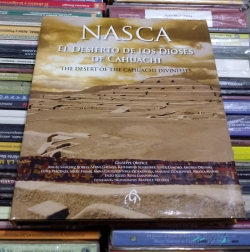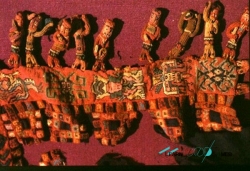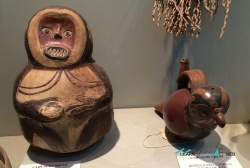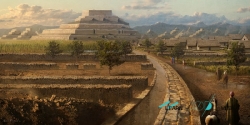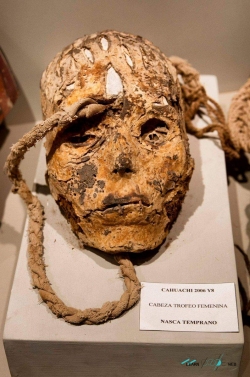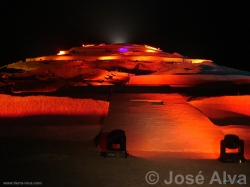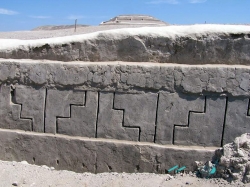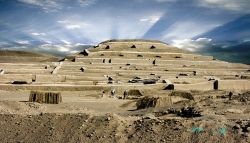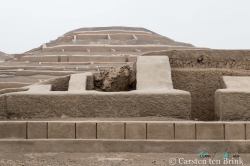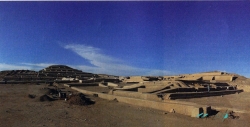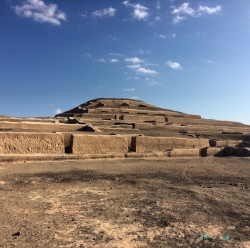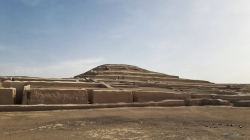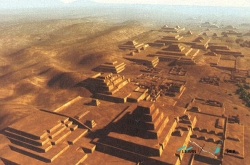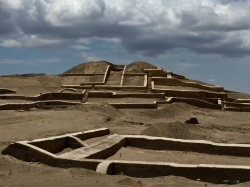Cahuachi, in Peru, was a major ceremonial center of the Nazca culture, based from 1 AD to about 500 AD in the coastal area of the Central Andes. It overlooked some of the Nazca lines. The Italian archaeologist Giuseppe Orefici has been excavating at the site for the past few decades. The site contains over 40 mounds topped with adobe structures. The huge architectural complex covers 0.6 sq. miles (1.5 km2) at 365 meters above sea level. The American archeologist Helaine Silverman has also conducted long term, multi-stage research and written about the full context of Nazca society at Cahuachi, published in a lengthy study in 1993.
Scholars once thought the site was the capital of the Nazca state but have determined that the permanent population was quite small. They believe that it was a pilgrimage center, whose population increased greatly in relation to major ceremonial events. New research has suggested that 40 of the mounds were natural hills modified to appear as artificial constructions. Support for the pilgrimage theory comes from archaeological evidence of sparse population at Cahuachi, the spatial patterning of the site, and ethnographic evidence from the Virgin of Yauca pilgrimage in the nearby Ica Valley.Looting is the greatest problem facing the site today. Most of the burial sites surrounding Cahuachi were not known until recently and are tempting targets for looters.
Scholars once thought the site was the capital of the Nazca state but have determined that the permanent population was quite small. They believe that it was a pilgrimage center, whose population increased greatly in relation to major ceremonial events. New research has suggested that 40 of the mounds were natural hills modified to appear as artificial constructions. Support for the pilgrimage theory comes from archaeological evidence of sparse population at Cahuachi, the spatial patterning of the site, and ethnographic evidence from the Virgin of Yauca pilgrimage in the nearby Ica Valley.Looting is the greatest problem facing the site today. Most of the burial sites surrounding Cahuachi were not known until recently and are tempting targets for looters.



